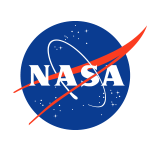Small Business Innovation Research/Small Business Tech Transfer
Robotics MobileRobot Navigation
Project Description

Robots and rovers exploring planets need to autonomously navigate to specified locations. Advanced Scientific Concepts, Inc. (ASC) and the University of Minnesota will develop a navigational system that employs an IMU and a 3D FLASH Lidar camera manufactured at ASC. The system will furnish both the position of the rover and an elevation map of the terrain. The map will be useful in detecting hazards to navigation both by rovers and during entry, descent and landing (EDL). The algorithm is designed to function in real-time with the comparatively slow speed computers available in space by employing an advanced algorithm that makes efficient use of Lidar determined landmarks. Those landmarks that only appear in a few images are not retained in the state vector, but nevertheless furnish constraints on the rover's pose for improving its state estimates. Those landmarks that persist in many images are used for improving the accuracy of both the rover's state and the map at complexity only linear in the number of landmarks. Significant components of this approach have enjoyed success in NASA tests in the Mohave Desert for EDL and have been assessed at level TRL 4.
More »
Anticipated Benefits
The proposed effort will result in a navigational system that will enable a vehicle to autonomously move to a specified location in a GPS denied environment. It would enable a Rover vehicle on a moon or planet to travel without human guidance to a specified waypoint. It would also be useful to guide a spacecraft as it navigates above a small body such as an asteroid. It would be useful to autonomously guide tools such as a sampling arm. It may be suitable for unmanned aerial vehicles (UAV) to progress to a waypoint autonomously. The system is an improvement over existing Rover navigational systems because it is less computationally burdensome – an important feature in space where qualified computers are several generations behind their terrestrial counterparts
The proposed navigational system that is based upon the ASC FLASH LidarTM camera would guide land vehicles to an intended destination autonomously while avoiding hazards in a GPS denied environment. The advanced navigation algorithm is designed to function with a computer having small computational power, which makes it suitable for applications such as unmanned air vehicles (UAV) where low SWAP is important. Accurate, lightweight navigational systems that function in GPS denied situations such as tunnels, indoors and in forests would be useful for many civilian and military applications including robotic mobility, enhanced situational awareness and rescue operations. More »
The proposed navigational system that is based upon the ASC FLASH LidarTM camera would guide land vehicles to an intended destination autonomously while avoiding hazards in a GPS denied environment. The advanced navigation algorithm is designed to function with a computer having small computational power, which makes it suitable for applications such as unmanned air vehicles (UAV) where low SWAP is important. Accurate, lightweight navigational systems that function in GPS denied situations such as tunnels, indoors and in forests would be useful for many civilian and military applications including robotic mobility, enhanced situational awareness and rescue operations. More »
Project Library
Primary U.S. Work Locations and Key Partners
| Organizations Performing Work | Role | Type | Location |
|---|---|---|---|
| Advanced Scientific Concepts, LLC | Lead Organization | Industry | Goleta, California |
 Ames Research Center
(ARC)
Ames Research Center
(ARC)
|
Supporting Organization | NASA Center | Moffett Field, California |
| University of Minnesota | Supporting Organization | Academia | Minneapolis, Minnesota |
Primary U.S. Work Locations
-
California
-
Minnesota

Suggest an Edit
Recommend changes and additions to this project record.

